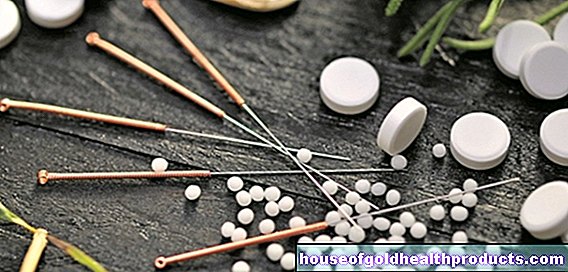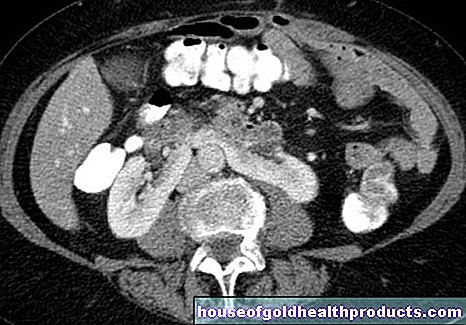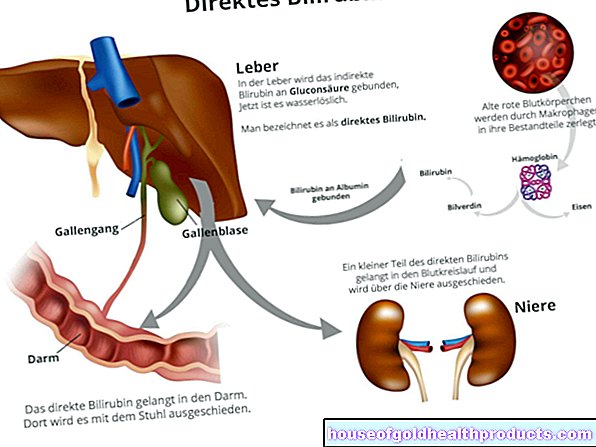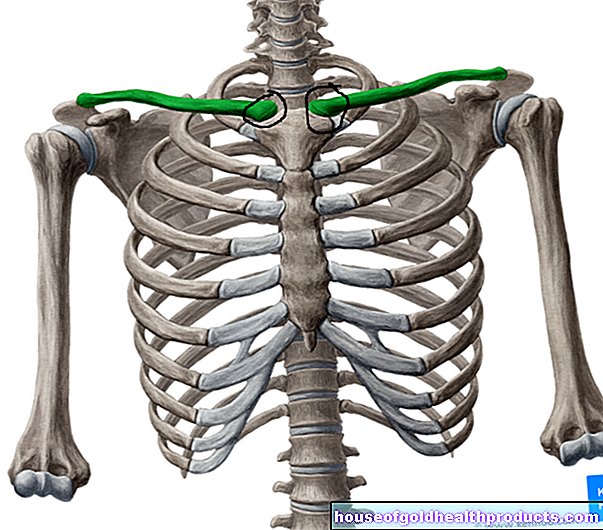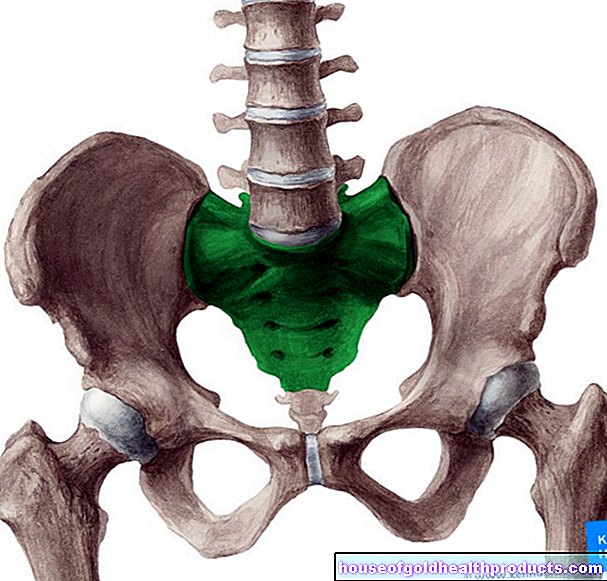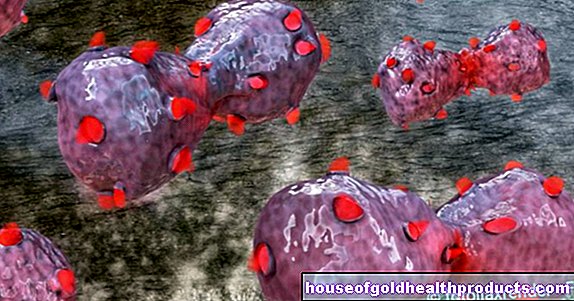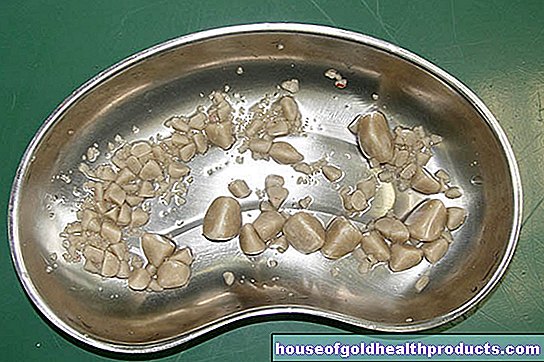Ketones in urine
and Martina Feichter, medical editor and biologistMartina Feichter studied biology with an elective subject pharmacy in Innsbruck and also immersed herself in the world of medicinal plants. From there it was not far to other medical topics that still captivate her to this day. She trained as a journalist at the Axel Springer Academy in Hamburg and has been working for since 2007 - first as an editor and since 2012 as a freelance writer.
More about the experts All content is checked by medical journalists.
If more ketones can be detected in the urine, it is called ketonuria. The breakdown products of fatty acids accumulate in large quantities in diabetes, high fever and high-fat diets, for example, and are then excreted in the urine. Here you can read everything you need to know about ketones in urine, when the doctor determines them and what influences ketone levels.
What are ketones?
Ketones (also known as ketone bodies) are substances that are produced in the liver when fatty acids are broken down. They include acetone, acetoacetate and b-hydroxybutyrate. When you are starving or when there is a lack of insulin, the body produces more ketones. These then enter the bloodstream and are excreted in the urine via the kidneys. If the doctor finds ketones in the urine, this is called ketonuria.
When do you determine the ketones in urine?
The examination of the urine for ketones is mainly carried out in the diagnosis of diabetes and in the further course of the disease. This applies to both type 1 and type 2 diabetes. The determination of the ketone bodies is particularly important in diabetic patients with metabolic disorders. Diabetics can also regularly check their urine for ketones using test strips. A midstream urine sample is best for this. There are different test fields on the test strip that change color when they come into contact with ketone bodies. The more ketones there are in the urine, the clearer the color change.
It is also important to determine the ketones in the urine of children: especially in newborns, ketonuria can indicate congenital metabolic diseases that must be treated as quickly as possible.
Ketones in the urine: what is normal?
In healthy patients, only very low concentrations of ketones can be detected in the urine, usually not more than 0.5 mmol / l. A color change on the test strip does not normally occur.
When is the urine ketone level too low?
There are no ketone levels in the urine that are too low.
When is the urine ketone level too high?
The urine contains more ketones in the following illnesses or situations:
- Diabetes mellitus
- high fever
- major injuries, even after operations
- high fat diet
The ketones in the urine are also increased during fasting and malnutrition, albeit to a lesser extent.
A false positive test result occurs when certain medications are taken, when large amounts of bacteria are excreted and when the urine sample is stored incorrectly.
Ketone in the urine: pregnancy
During pregnancy, too, there are some clinical pictures and complications that become noticeable with ketonuria. This includes, for example, the so-called hyperemesis gravidarum. This means persistent and difficult to control vomiting during pregnancy.
Pregnant women with diabetes also have an increased risk of metabolic imbalance, which is why regular monitoring of possible ketones in the urine is very important.
What to do with ketonuria
If the doctor finds ketone bodies in the urine, he must find out whether a disease is the cause. For example, if diabetes is suspected, the doctor will determine the blood sugar levels, such as HbA1c. The occurrence of ketones in the urine alone is not sufficient to make a reliable diagnosis.
Tags: healthy workplace nourishment therapies



